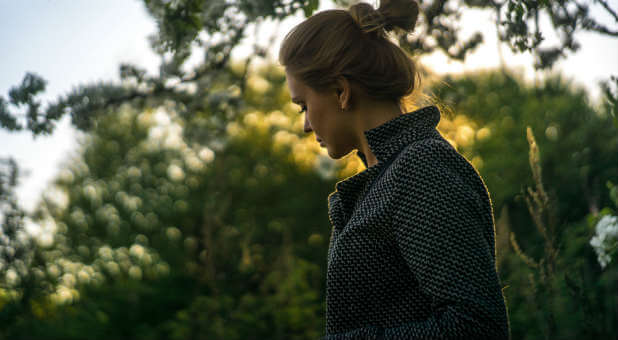You, me, Hagar. We have all experienced that terrible brand of fear that grips our chest so tightly we can hardly breathe. The fear that triggers our sudden desire to binge-watch Netflix and never leave our home or say yes to another project so we can leave it more often.
Not all fear is bad fear. Car barreling toward you? Be scared and move out of the way! Peer pressure tempting you to replay a regret? Have enough fear to not be stupid again. Fear is not bad as long as it is properly placed. Placing our fear in the Lord brings “our good always and our survival” (Deut. 6:24, NASB), but, placing our fear in humans, sends us running in to the desert of isolation (Gen. 16), or spiraling out of control in jealousy (Gen. 21), just as it did for Hagar.
Throughout my young adult life, I dealt incredibly recklessly with my deep-seated fear of rejection. Perhaps you’ve experienced similar early wounds as me? You know how it goes—the one man who should have been there made it easier to need all the men who shouldn’t have been there.
Regardless of our backstory, it’s safe to say we’ve all experienced rejection. We can all name the person who should have loved us, but didn’t. And, we can all trace a line from that one, young wound, to the current ways we still seek acceptance.
So God, doing what God does best, uses every opportunity to reign us back in to the reality that not one person or experience compromises our eternal belonging.
The first time we meet Hagar, she is running away to isolate herself out of fear of rejection. The second time we see her, she is sent away as the consequence of another woman’s fear of rejection.
As women, we know better than to pretend that Sarah and Hagar were BFF. Sarah was the boss lady. Hagar, the baby-maker. Sarah and Hagar shared the same house, meals, conversation, chores, God bless, they even shared the same man! Due to all of this “sharing,” I deduct, these two women most likely did not also share affection for one another.
I don’t have to imagine, because the Bible account of this story makes it clear; both Sarah and Hagar also dealt recklessly with their personal insecurities. Sarah, jealous that Hagar was fertile and she was not. Hagar, jealous that Sarah would always be in charge and she would never be more than her servant. Both, desperate to be significant and acknowledged.
Although Hagar would be a servant to Sarah for the rest of her life, God had no desire for her to be enslaved. In fact, God would use the wrong kind of fear (human’s compromising acceptance), to reposition her in to the right kind of fear (God’s uncompromised acceptance). Using the wilderness as the perfect place to get Hagar’s attention, God speaks to her the same question he does for us in our fear; “Hagar, what is wrong? Do not be afraid” (Gen. 21:17). In one breath, both a question and statement from the heart of God. When we find ourselves in a wasteland of fear, God’s compassionate nature seeks to validate that we are feeling, while simultaneously telling us the truth about what we are feeling. Unlike humans, who most often zero in on behavior, God’s patience draws our motive out of hiding. God knows that only true freedom will be found as we consider not what we have been doing (behaviors), but instead, why we have been doing it (motive).
The chains of my personal struggle with fear of rejection finally fell to the ground the more often I chose to believe that there was nothing I had done, was doing or could do that would cause God to reject me. Because He was the only one able to see all the way through, the only one capable of tracing the line of my present behaviors to the root of my past wounding.
God sees all the way around us. Much like Hagar sees God in the wilderness when she exclaims, “Did I just see the back side of God?” (see Gen. 16:13).
The only love to be trusted is the one who sees the backside of our heart.
Placing her fear in a God who “saw her” may not have changed Hagar’s vertical position as a slave, but it did change her horizontal position to free woman. Like Hagar, we may never receive the apology we crave, the justice we long for, the attention and acceptance we seek. We may never, in this lifetime, feel totally healed of our past wounds of rejection. But deliverance from fear of man is not about human position. Instead, it is all about God’s promise to “never leave or forsake us (Heb. 13:5).” {eoa}
Kasey Van Norman is an author, a licensed counselor and a featured Bible teacher for the new Known by Name Bible study series (Zondervan). Kasey teaches and writes about the love that has redeemed her life from the shame of her past.












